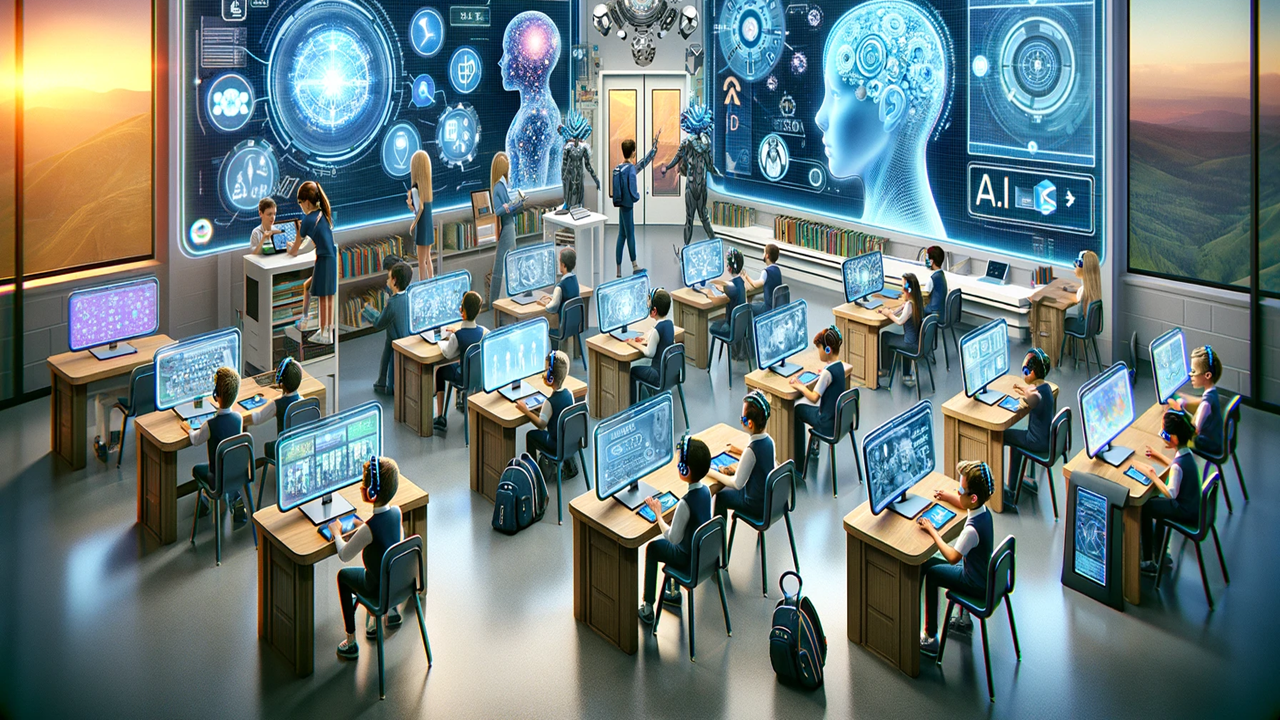Customized Minds: The AI Revolution in Learning and Behavioral Change
This article examines the transformative impact of AI on educational technologies, highlighting how personalized learning experiences and intelligent tutoring systems are making education more adaptive and engaging. AI is not only enhancing how we learn but also how we adapt our behaviors, offering significant benefits for students and educators alike.

In an era where education is becoming more personalized and accessible, Artificial Intelligence (AI) is playing a pivotal role in transforming how we learn and adapt our behaviors. "Customized Minds: The AI Revolution in Learning and Behavioral Change" delves into the burgeoning field of AI-driven educational technologies that offer personalized learning experiences and intelligent tutoring systems. This exploration reveals how AI is not only reshaping educational paradigms but also setting new standards for individualized learning and behavioral adaptation.
The Rise of Personalized Learning
The traditional one-size-fits-all approach to education is rapidly becoming obsolete in the face of technologies that cater to the unique learning styles and paces of individual students. AI-driven platforms can analyze a student's performance in real-time, adjusting the complexity and style of content to better suit their learning needs. This kind of tailored learning approach helps to maximize a student’s educational achievement and keeps them engaged.
Intelligent Tutoring Systems
Intelligent Tutoring Systems (ITS) are a prime example of AI’s application in education. These systems use AI to provide a customized education experience that adapts to the learner’s evolving needs. By continuously assessing a student's responses and behaviors, ITS can identify patterns and predict areas of difficulty, offering additional resources or new strategies to improve understanding and retention.
Enhancing Engagement with Gamification
AI also enhances learning by incorporating elements of gamification, which can make education both entertaining and inspiring. By integrating game design elements into the learning process, students experience a more interactive and stimulating educational journey. This approach not only increases engagement but also motivates continued learning and the application of knowledge in real-world scenarios.
Behavioral Change through Educational Technology
Beyond academic learning, AI is instrumental in influencing behavior change. Educational technologies equipped with AI capabilities can help develop soft skills such as emotional intelligence and adaptability. AI systems can guide users through scenarios that teach negotiation, empathy, and leadership skills, thereby preparing them for complex interpersonal interactions and professional environments.
Data-Driven Insights for Educators
AI does not only benefit students but also empowers educators with deeper insights into the learning processes of their wards. Through data analysis, AI can help identify trends and predict outcomes, allowing educators to better support students who might be at risk of falling behind. This can lead to more effective interventions and more finely tuned educational strategies.
Ethical Considerations and Privacy
With great power comes great responsibility. The use of AI in education raises significant ethical questions, particularly concerning data privacy and the potential for bias in AI algorithms. Ensuring that AI systems are transparent and fair, and that they protect student data, is crucial for their ethical application in educational settings.
The Future of AI in Education
Looking forward, the potential for AI in education is vast. We can expect further integration of AI into various learning environments, from K-12 to higher education and continuing education. The evolution of AI will likely bring even more sophisticated adaptive learning platforms that can provide personalized education at scale, potentially transforming the educational landscape globally.
Conclusion
AI’s role in education represents a significant leap forward in how we approach learning and behavior change. As this technology continues to evolve and become more integrated into our educational systems, it promises to enhance learning experiences, tailor educational content, and support educators. The future of education with AI is not just about intelligent tutoring systems or data analysis—it’s about creating a more inclusive, adaptive, and effective learning environment for all.










